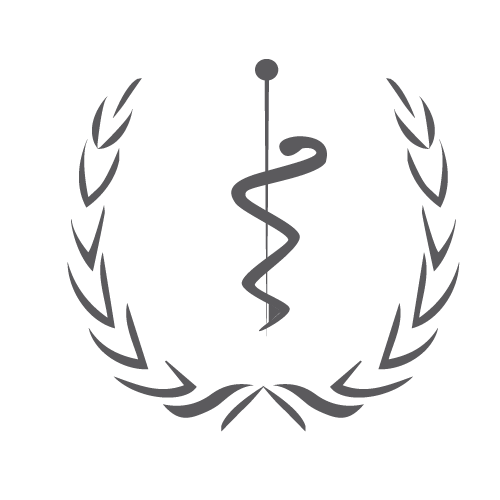Pre-operative guidelines
• DO NOT EAT OR DRINK ANYTHING (INCLUDING CANDIES OR GUMS) 8 HOURS PRIOR TO YOUR SCHEDULED SURGERY TIME.
• ARRANGE FOR A RESPONSIBLE ADULT TO TAKE YOU HOME AND STAY WITH YOU FOR 24 HOURS after surgery. Although everyone heals differently and has varied pain thresholds, expect some soreness, fatigue, mood swings and some fogginess for a minimum of 1 week post-op. Swelling and bruising typically peak at day 4-5 post-op during the normal healing process.
• WOMEN WHO ARE EXPERIENCING THEIR MENSTRUAL CYCLE DO NOT WORRY, IT DOES NOT CONTRAINDICATE THE SURGERY. A CHANGE IN THE FIRST MENSTRUAL CYCLE FOLLOWING SURGERY IS NORMAL. It may be lighter and shorter. Menstrual irregularity usually lasts just one cycle.
• CONSTIPATION IS NORMAL FOLLOWING SURGERY. General anesthesia slows down the gastrointestinal tract and narcotic pain medication increases the likelihood of constipation. Drink lots of water and be sure to eat a well balanced diet including fruits and vegetables the days before and after surgery.
• IF YOU ARE PRONE TO NAUSEA OR MOTION SICKNESS, let your physician know. Routine anti-nausea medications will be given through your IV in the operating room to prevent nausea. Antibiotics, steroids for swelling, and pain medications may be administered as well before you wake up from surgery. If necessary, medications can also be prescribed to prevent nausea at home.
• PLEASE, do not hesitate to contact the office or Dr. Freschi +54-11 4813-6191 / Whatsapp: +54 11 30434493. We are all here to make your surgical experience as comfortable as possible.
WARNING ABOUT BLOOD THINNING MEDICATIONS
Below is a list of medications that must be stopped for the 7 to 14 days before surgery:
• Ticlid
• Coumadin
• Garlic
• Gingko
• Ginseng
• Ibuprofen
• Lovenox
• Naproxen
• Plavix
• St. John's Wort
• Vitamin E
If you need pain, headache, cough, or cold medicine during the 7 to 14 days prior to surgery, you may take products containing Acetaminophen (Tylenol).
The day of your surgery
Keep the following in mind for the day of your procedure: Remember do not eat or drink. No candies, no gums.
• Go to the clinic enough time. Always better sooner than later
• Plan to wear loose fitting clothing, and do no wear any make-up or jewelry
• Bring all the preop. tests
• Bring Passport / ID
• Bring the compression garments if indicated
• YOU WILL BE CHECKED BY THE NURSES AND ASKED TO CHANGE INTO A GOWN.
• Dr. Freschi will visit you right before the procedure to do the markings and pictures as needed.
• You will be gently carry to the O.R.
• ONCE YOU'RE IN THE OPERATING ROOM you will be asked to lie on the table. The anesthesiologist will give you medication through your I.V. to relax you as soon as you are lying down. These medications also help you to forget being in the operating room.
• AN IV WILL BE STARTED IN YOUR HAND OR FOREARM in the pre-op area and a nurse will accompany you in the operating room throughout your surgery. ONCE YOU'RE IN THE OPERATING ROOM you will be asked to lie on the table. The anesthesiologist will give you medication through your I.V. to relax you as soon as you are lying down. These medications also help you to forget being in the operating room.
• MONITORS AND EQUIPMENT will be applied to your body. This may include a blood pressure cuff on your arm, a pulse oximeter on your finger, 3 EKG pads on your torso, SCD pressure stockings to your calves (to reduce blood clots), and a grounding pad to your thigh (for surgical electro-cautery machine).
• YOU WILL DRIFT OFF TO SLEEP VERY COMFORTABLY. A tube will be placed in your throat AFTER you are asleep and will be removed BEFORE you wake up. The only awareness you may have of the tube could be a sore, scratchy throat following surgery. If your surgery is planned for more than 3 hours, you may also have a FOLEY CATHETER in your bladder. This will also be inserted AFTER you are asleep and removed before you wake up. If you are staying overnight, the catheter will be removed in the morning. You should be able to urinate normally after its removal.
Post-operative guidelines
Dr. Freschi will carefully guide you through your cosmetic procedure as you heal. It is important to recognize that each person recovers at a different rate so set aside adequate recovery time from work and strenuous activity to allow your body to heal. This will ensure a smooth recovery and a more rapid return to normal activities.
MOST IMPORTANTLY, REMEMBER TO LISTEN TO YOUR BODY…Rest when you feel pain or fatigue. BE PATIENT with the healing process, and remember you may have good and bad days.
TAKE YOUR MEDICATIONS AS DIRECTED. Pain tolerance varies from one person to the next. Stay on top of your pain by taking your medication regularly for the first few days. Take your medications with food to decrease the chances of nausea.
REST FOR THE FIRST 24 HOURS following surgery. DO NOT drive or drink alcohol while taking narcotic pain medication. You may walk and climb stairs slowly. No heavy lifting or any exercising for a minimum of 2+ weeks. LISTEN TO YOUR BODY!
YOU MAY SHOWER 24-48 HOURS after surgery. Keep your incisions clean and dry. Dr. Freschi may remove your dressings at your post-op visit.
REMEMBER SCARS TAKE A YEAR TO FULLY HEAL. Wear Sunscreen (SPF 50) over your scars after they heal.


